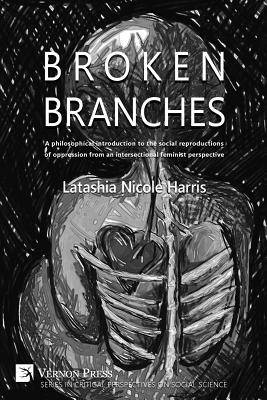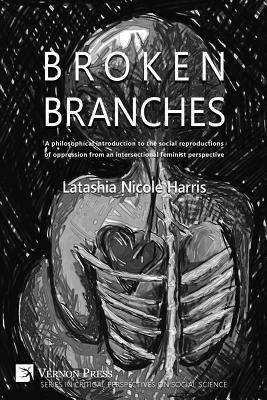
- Retrait gratuit dans votre magasin Club
- 7.000.000 titres dans notre catalogue
- Payer en toute sécurité
- Toujours un magasin près de chez vous
- Retrait gratuit dans votre magasin Club
- 7.000.000 titres dans notre catalogue
- Payer en toute sécurité
- Toujours un magasin près de chez vous
Broken Branches
A Philosophical Introduction to the Social Reproductions of Oppression from an Intersectional Feminist Perspective
Latashia N HarrisDescription
Broken Branches places a critical lens on the infrastructure, institutions, social processes and practices that govern our society. The text examines the ways that neoliberalism influences society and our lives across generations. The practice of colonialism is deconstructed, showing how this practice has been renamed, but holds steadfast to its original intention of cultivating institutionalized oppression that feeds social perception. The author exposes the ways that social perceptions, juxtaposed semantics, commonly accepted definitions, practices, rhetoric and propaganda create products of maintained systemic injustice when resistance is absent and desensitization is prevalent. Colonialism and its consequential social reproductions of oppression continue to traverse across land, body, and mind in individual as well as collective contexts. Broken Branches explores the tributaries of oppression but also highlights the source of oppression within the United States. The philosophical, intersectional and feminist approach of critical analysis lays the framework for further interrogation and utilizes the catalyst of historical precedence to initiate this introduction. The author implores the reader to take introspective steps towards understanding where one's own complicity exists in oppression as well and addresses the cognitive dissonance we have become accustomed to in perpetuating oppression. Broken Branches offers suggestions on how to forge forward to create substantive and structural change that is not contingent on the dispossession and oppression of the marginalized so that the health and vitality of a few is sustained. Broken Branches encourages the practice of continuous inquiry and acknowledges that transformation is not possible without change. The author pushes for collectively empowered marginalized voices, operationalized pathways to inclusion, intersectional and equitable perspectives, and an increased investment in healing the trauma caused by the perpetuation of colonialism.
Spécifications
Parties prenantes
- Auteur(s) :
- Editeur:
Contenu
- Nombre de pages :
- 192
- Langue:
- Anglais
- Collection :
Caractéristiques
- EAN:
- 9781622730889
- Date de parution :
- 03-08-17
- Format:
- Livre broché
- Format numérique:
- Trade paperback (VS)
- Dimensions :
- 152 mm x 229 mm
- Poids :
- 263 g







